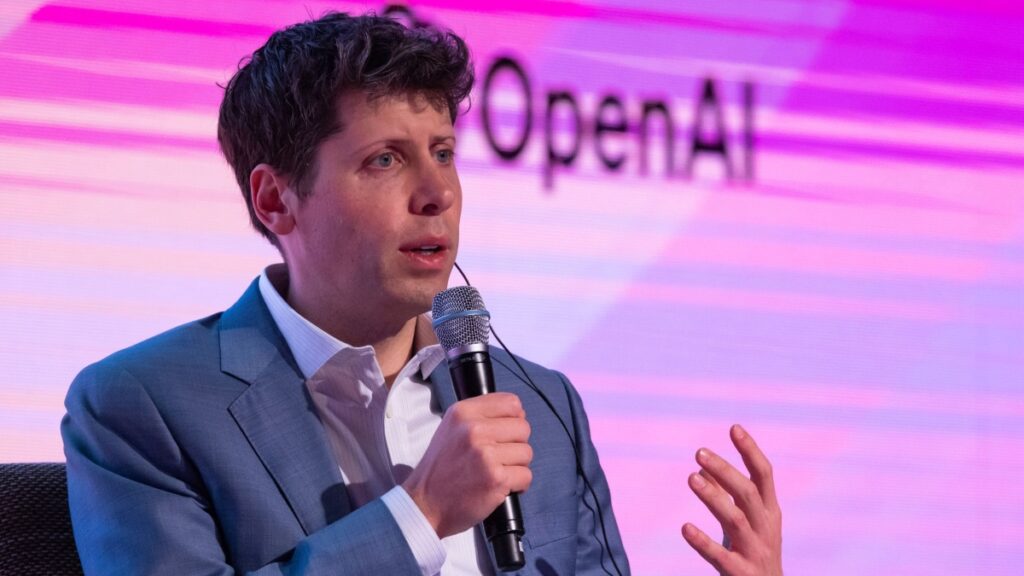ChatGPT maker OpenAI is working on a plan to restructure its core business into a for-profit corporation that will no longer be controlled by its nonprofit board, people familiar with the matter told Reuters, in a move that will make the company more attractive to investors.
The nonprofit OpenAI will continue to exist and own a minority stake in the for-profit company, the sources said. The move could also have implications for how the company manages AI risks in the new governance structure.
CEO Sam Altman will also get an equity stake for the first time in the for-profit company, which could be worth $150 billion (roughly Rs. 12,55,438 crore) after the restructuring as it also seeks to remove a cap on returns to investors, the sources added. The sources requested anonymity to discuss private matters.
“We remain focused on building AI that benefits everyone and are working with our board to best position ourselves to succeed in our mission. Being a nonprofit is at the core of our mission and will continue to be,” said an OpenAI spokesperson.
Details of the proposed corporate structure, first reported by Reuters, highlight significant management changes taking place behind the scenes at one of the most important AI companies. The plan is still being negotiated with lawyers and shareholders, and the timeline for completing the restructuring remains uncertain, the sources said.
The restructuring also comes amid a series of leadership changes at the startup. OpenAI’s longtime CTO Mira Murati suddenly announced her departure from the company on Wednesday. Greg Brockman, president of OpenAI, was also on leave.
Founded in 2015 as a non-profit artificial intelligence research organization, OpenAI added the for-profit entity OpenAI LP as its non-profit subsidiary in 2019, securing capital from Microsoft to fund its research.
The company gained global attention with the late 2022 launch of ChatGPT, a generative AI app that provides human-like responses to text queries, which became one of the fastest-growing apps in history with more than 200 million weekly active users, igniting a global race to invest in AI. .
Coupled with ChatGPT’s success, OpenAI’s valuation has skyrocketed from $14 billion (roughly Rs. 1,17,174 crore) in 2021 to $150 billion (roughly Rs. 12,55,438 crore) in a new round of convertible debt that is being discussed , attracting investors such as Thrive Capital and Apple.
AI Security
The company’s unusual structure, which gives the nonprofit OpenAI full control of the for-profit subsidiary, was originally set up to ensure the mission of creating “secure AGI that is widely useful,” referring to general artificial intelligence that equals or exceeds human intelligence.
The structure came into focus last November during one of Silicon Valley’s biggest boardroom dramas, when the nonprofit’s board members fired Altman over a breakdown in communication and a loss of trust. He was returned to work after five days with tremendous support from employees and investors.
Since then, OpenAI’s board of directors has been refreshed with more technical executives, chaired by Bret Taylor, a former Salesforce co-CEO who now runs his own AI startup. All corporate changes need the approval of the nine-member non-profit board.
The removal of nonprofit control could make OpenAI operate more like a typical startup, a move generally welcomed by its investors who have poured billions into the company.
However, it could also raise concerns in the AI safety community about whether the lab still has enough governance to be held accountable in its pursuit of AGI, as earlier this year it disbanded a super-alignment team that focuses on the long-term risks of artificial intelligence. intelligence. .
It is unclear how much capital Altman will receive. Altman, who has already become a billionaire thanks to multiple investments in startups, previously said he decided not to take an ownership stake in the company because the board needed a majority of disinterested directors with no stake in the company. He also said that he has enough money and that he is doing this because he likes the job.
OpenAI’s new structure would resemble that of its arch-rival Anthropic and Elon Musk’s xAI, which are registered as charitable corporations, a form of for-profit organization that aims to promote social responsibility and sustainability while making a profit.
© Thomson Reuters 2024
(This story was not edited by NDTV staff and was automatically generated from a syndicated feed.)


